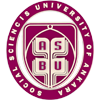PRELIMINARY EVALUATION PROCESS
When a paper is submitted to the journal, the first step is to check that it complies with the journal's publication policy, citation rules and spelling conventions. At the same time, a plagiarism report is obtained to determine the plagiarism rate of the paper. If the plagiarism rate of the paper is more than 15%, the paper will be rejected directly by the Editorial Board without any further action. If the paper does not comply with the spelling and citation rules, it will be returned by the relevant editor. If the paper complies with the citation procedure and spelling rules, and the plagiarism report is below the specified rate, a referee will be appointed to evaluate the paper. Except in cases where changes are requested by the author, the preliminary review stage and the appointment of referees will be completed within 7 (seven) working days.
REFEREE EVALUATION PROCESS
The referee evaluation process is carried out by DergiPark. The publication process in the journal is based on double-blind refereeing. The referees are determined taking into account the field of the work. Once the referee for a paper has been determined, an invitation is sent to the referee to review the paper. The referee has seven days to accept or decline the invitation. If the referee does not take action within the seven day period, an additional five day period is granted. If no action is taken within this period, another person will be appointed as arbiter. If the arbiter accepts the invitation, 21+7 (twenty days + seven days extension) days shall be allowed for the evaluation.
If the referee requests changes to the paper, the author is expected to make the necessary changes within one month from the date of the referee's report and send the updated version of the paper to the Editorial Board. If the manuscript is not sent to the journal in accordance with the reviewer's changes within the specified time, the Editorial Board has the right to reject the manuscript.
EDITING PROCESS
If one referee is positive and the other negative, a third referee will be appointed according to the same principles. If the third referee's report is positive, a decision will be made to publish the paper; if it is negative, a decision will be made to reject it.
It is envisaged that the peer review process will be completed in approximately three months in cases where the peer review is completed with two reviewers, and in approximately four months in cases where the peer review is completed with three reviewers.
EDITORIAL PROCESS
Manuscripts that have received a positive opinion from the reviewers will be edited for publication by the Editorial Board. At this stage, the manuscript is again checked by the layout editor to ensure that it conforms to the rules of spelling and citation. Simple, non-substantive corrections are made by the Editorial Board by showing the changes in the word environment using the track changes mode, informing the author that the paper will be published in accordance with these changes, and obtaining the author's approval.
During the editorial process, all papers to be published according to the full issue format of the journal are combined into a single file. The full issue file is published online.
For a sample referee evaluation report (evaluation criteria), see ASBÜHFD referee evaluation criteria.
